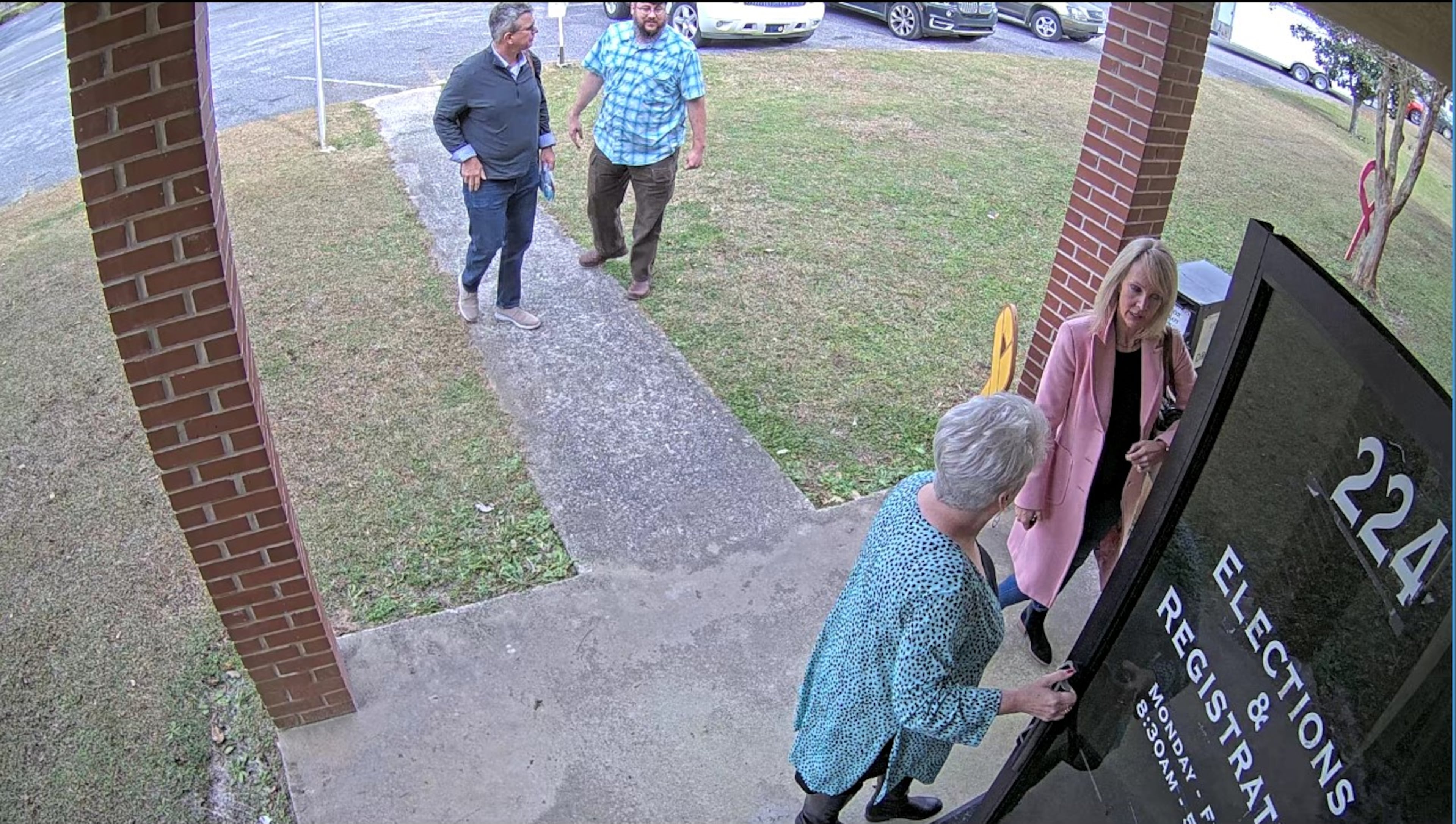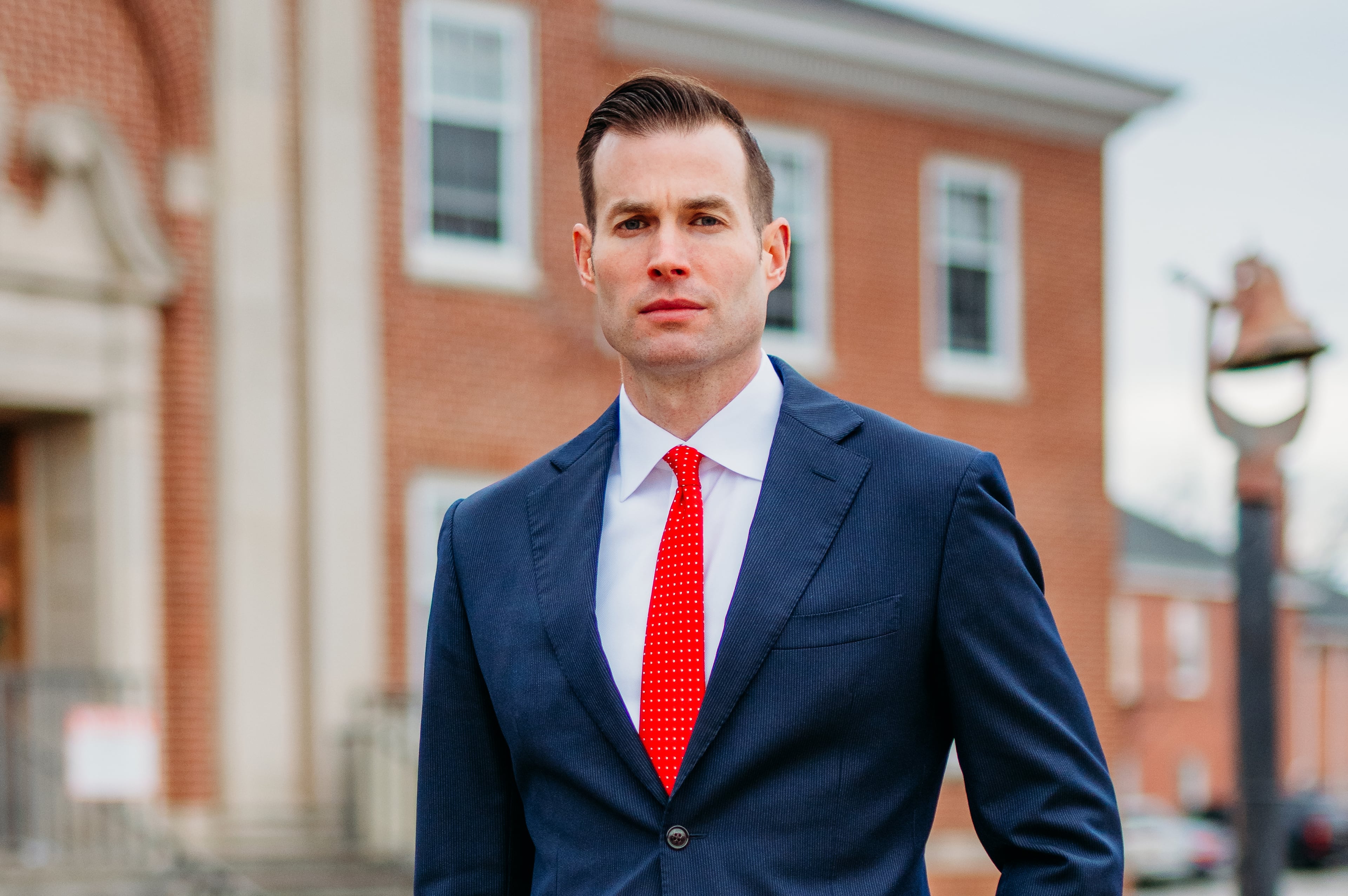Feds asked to investigate multistate ‘plot’ to copy election software

Election security advocates called for federal investigations Tuesday of a “coordinated plot” by former President Donald Trump’s supporters to copy election software in Georgia, Michigan and Nevada after the 2020 election.
The request urged Jack Smith, the U.S. Department of Justice’s special counsel investigating Trump, to pursue the multistate data-copying effort as part of his probe into the former president’s attempts to stay in power after losing the election.
Recent revelations that Trump attorneys directed election data copying in several states require a broader inquiry, said the letter to Smith, the FBI and the Cybersecurity & Infrastructure Security Agency by the national election advocacy organization Free Speech for People, along with several former election officials and computer scientists.
Working for Trump attorney Sidney Powell, computer analysists copied a trove of election software and data in Coffee County, Georgia, on Jan. 7, 2021, according to court documents and surveillance video. Election security experts have said the disclosure of the inner workings of election computers increases the risk of hacks in future elections.

“The Coffee County breach was just one element of a coordinated plan to access and copy voting system software from multiple states, multiple jurisdictions, and different voting system vendors, by lawyers acting on behalf of the Trump campaign, possibly constituting federal crimes,” according to the letter.
After copying the data, it was distributed through a website to conspiracy theorists who deny the results of the presidential election, which Trump lost in Georgia by about 12,000 votes.
Documents and video proving that outsiders gained access to Coffee County election systems came from a lawsuit by private citizens seeking paper ballots filled out by hand rather than by computers in Georgia. Several of the people who signed the letter are consultants for the plaintiffs.
“Because this plot was orchestrated by individuals currently under investigation for their attempts to overturn the 2020 presidential election, it is possible that the coordinated effort to obtain voting system software was also part of an ongoing conspiracy to overturn elections,” the letter said.
The GBI has said it is conducting a criminal investigation into computer trespass in Coffee County. The Department of Justice declined to comment.
“The GBI investigation is active. There are no new updates and no federal assistance,” said GBI spokeswoman Nelly Miles.
Georgia election officials say election equipment is secured by public testing, audits and paper ballots. The secretary of state’s office replaced much of Coffee County’s election computer system in September.
“Georgia election results accurately reflect the will of the people of Georgia, and it’s nothing but conspiracy theories and election denialism to say otherwise,” said Mike Hassinger, a spokesman for the secretary of state’s office.
The letter from the election security advocates said that bad actors could use the software taken from Georgia to develop malware, which could be loaded onto Dominion Voting Systems computers by an elections director, poll workers, maintenance worker or voter.
There’s no evidence that hacks or malware have ever manipulated election results in any Georgia election.
Several of the people involved in Coffee County also coordinated election data copying in other states, including Powell. Another attorney for Trump, Jesse Binnall, organized election information copying in Nevada. Powell didn’t immediately respond to emailed questions Tuesday. Binnall didn’t provide comment.
Powell was billed over $26,000 by Atlanta tech company SullivanStrickler to copy election information in Coffee County, and the firm also worked for Trump’s attorneys in Antrim County, Michigan, and Clark County, Nevada.
Later in January 2021, surveillance video showed that two other people also visited the Coffee County elections office: Cyber Ninjas CEO Doug Logan, who led a controversial Republican ballot review in Arizona after the 2020 presidential election, and Jeff Lenberg, a computer security consultant who analyzed voting equipment in Michigan and New Mexico.



